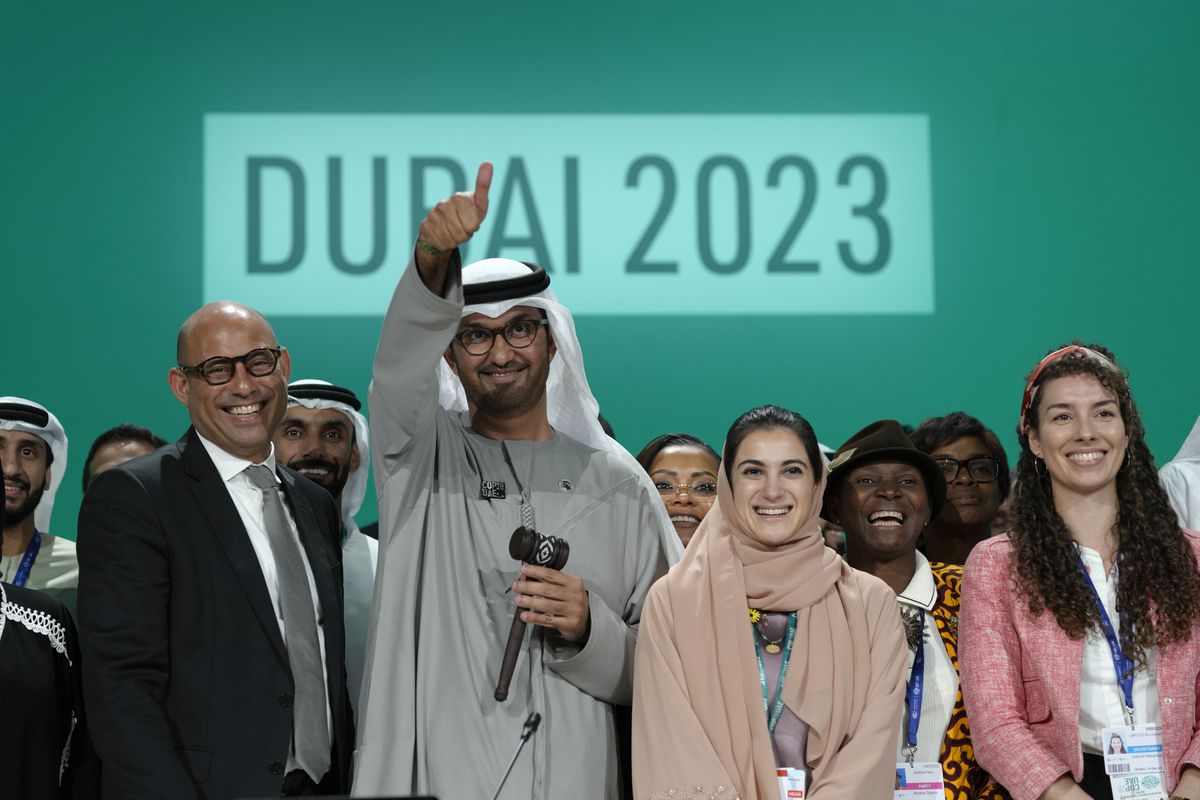
It has taken 30 years of climate summits and environmental mobilizations to reach an agreement that points the way to the end of the fossil fuel era. After days of wrangling, the document agreed upon by nearly 200 countries gathered at the climate summit (COP28) in Dubai explicitly states for the first time the need to move away from oil, coal and gas as the main causes of climate change. Until now, the focus has been on reducing greenhouse gas emissions, ignoring the fact that they are caused by fossil fuels. Previous attempts to agree on their exit had failed at the summits in Glasgow and Sharm el-Sheikh. Eventually, a less forceful deadline was imposed, but the final pact represents a clear defeat of countries like Saudi Arabia or Iraq, which, as visible faces of oil interests – Russia has done it in a sibylline way – have struggled to prevent the now condemned mentioned fossil fuels, or at least had them mentioned ambiguously.
This is a historic agreement in that it proposes to “phase away from fossil fuels in energy systems in a fair, orderly and equitable manner” and “accelerate action in this critical decade” to achieve net-zero emissions in 2050 . The statement is very important because it sends a clear message to the financial system, industry, investors and all kinds of public and private organizations about how they should direct their policy decisions from now on.
The result is better than what was expected at the beginning of the summit, which paradoxically took place in a petrostate. There have been attempts to draw attention to proposals for technological solutions, such as the defense of carbon capture techniques, which many countries have insisted on. This technology – where the CO2 emitted by industrial activities is captured and transported to a geological storage site to isolate it from the atmosphere – can still be useful in industries such as metallurgy, but not, for example, in the electrical industry, where there is renewable energy there is a cheaper alternative. In any case, carbon capture is by no means the solution to global warming.
As COP28 President Sultan al-Jaber said at the presentation: “An agreement is only as good as its implementation.” This now depends on each country adopting the agreed goals of phasing out fossil fuel use They will triple global renewable energy capacity and double the global average annual rate of improvement in energy efficiency by 2030. Everything must be spelled out in the new emissions reduction plans that each country must submit within two years.
We have time to ensure that warming since pre-industrial times does not exceed 2.1 degrees, even if it becomes increasingly difficult to meet the 1.5 degrees proposed in the 2015 Paris Agreement. This requires a clear political commitment to accelerate the decarbonization of the economy. With current emission reduction plans, the average temperature is expected to rise between 2.1 and 2.8 degrees in the best scenario. The Dubai Agreement is also a major achievement because it approved a loss and damage fund to compensate the countries most vulnerable to climate change and help them mitigate its effects, but now it must be honored .
Sign up for our weekly newsletter to receive more English-language news from EL PAÍS USA Edition

